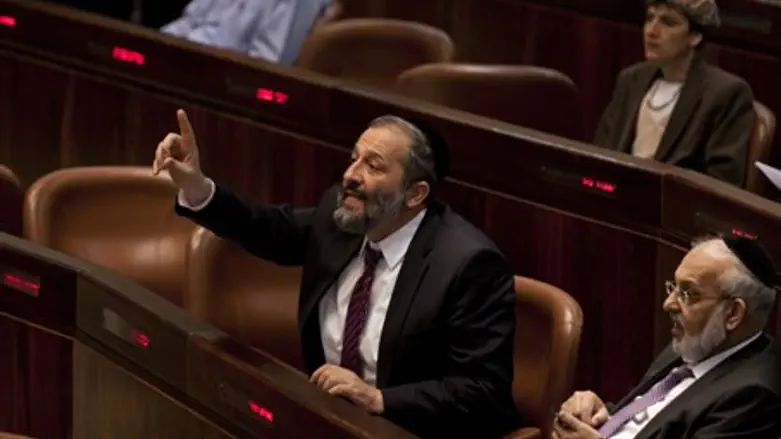
Anxious – if not desperate – to pass the biennial 2016/17 state budget by its Wednesday deadline, the government made two major compromises with its coalition partners. At its weekly meeting, the government approved a demand by Shas to remove VAT sales tax charges from public transportation and reduce them significantly for basic food products like bread and milk when purchased by poor people, as well as a Jewish Home demand to provide more security for Jewish residents of Arab neighborhoods in Jerusalem.
A government source said that an agreement was “close” on Jewish Home's other major demand – increasing the budget for the Housing Ministry's Settlement Division.
In the first concession to Jewish Home, the government agreed to fund security for Jews living in eastern Jerusalem, City of David, the Old City, and other neighborhoods to the tune of NIS 83 million, instead of the current NIS 50 million; for the latter concession, a tripling of the current NIS 50 million budget is likely, the source said.
Shas leader Aryeh Deri had threatened last week to instruct Shas MKs not to vote in favor of the budget if his zero-VAT plan was not approved. Last week, a report said that Deri had backed down from the demand, but on Sunday it became apparent that he had not. If the budget is not approved by Wednesday, the government will automatically fall, and new elections will be called.
Commenting on the vote, Prime Minister Binyamin Netanyahu said that he did “not like the decision, but we have to keep our promises,” referring to the fact that implementing the zero-VAT plan was part of the government's coalition agreement with Shas. Deri, for his part, said he was “very happy” with the vote, pointing out that he had “promised and fulfilled my promise” on the matter.
According to the decision, the government will set up a committee to examine how to implement the decision – but that it would be implemented by January 1. Sources close to Deri said that he would insist that the decision was enacted. Once implemented, the cost of public transportation for all Israelis will fall by 17%, the amount of VAT collected on every bus and train ticket. It's not clear how the reduction of VAT charges on basic foodstuffs Israelis will be implemented only for low-income for low-income citizens, and the committee is likely to work mostly on that conundrum, government sources said.